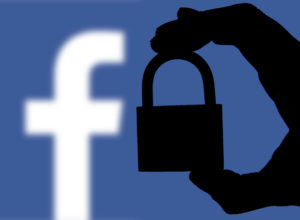Facebook Security and Social Media Employee Guidelines
Posted March 28th, 2018 by Anthony Carbone, PC.
Categories: Legal Topics.
 Here’s the story. Three Facebook Messenger users sued Facebook, seeking class-action status on behalf of users who were affected by the revelation of the social media platform’s data being shared without permission. The lawsuit alleges that Facebook violated user’s privacy by collecting phone calls and text messages.
Here’s the story. Three Facebook Messenger users sued Facebook, seeking class-action status on behalf of users who were affected by the revelation of the social media platform’s data being shared without permission. The lawsuit alleges that Facebook violated user’s privacy by collecting phone calls and text messages.
Let us not forget to mention the Cambridge Analytica scandal that rocked news waves for the past two weeks, which accessed over 50 million Facebook user’s personal data without their permission either. Because of these incidents and many more that have occurred over the past few months, we thought it would be timely to talk about social media security and New Jersey law.
Unfortunately, there are no New Jersey laws and guidelines that govern people’s personal Facebook accounts. Not yet anyway. But based on all of these failures to protect personal data, there most likely will be new laws forthcoming. When it comes to the workplace, there are plenty of laws, guidelines, and regulations that govern Facebook and other social media platforms.
Social Media and the Workplace
In 2013, New Jersey joined (at the time) eleven other states – Arkansas, California, Colorado, Illinois, Maryland, Michigan, New Mexico, Oregon, Utah, Nevada, and Washington – by passing a bill that bars employers from requiring current or prospective employees to divulge their account usernames or passwords. The law ultimately bars employers from accessing employees’ personal social media accounts.
This law applies to all of New Jersey employers, regardless of business size. However, the only employers who do not qualify for protection under this law are county corrections departments, the Department of Corrections, State Parole Board, and law enforcement agencies. Built into this law are four employee anti-retaliation provisions. They include protecting employees who:
- Refuse to provide personal account information
- File a complaint with the Commissioner of Labor and Workforce Development
- Assist or testify in an investigation or proceeding concerning a possible violation
- Oppose a violation of this law
If an employee is fired, declined an opportunity, or has their job status changed because they refused to grant access to their Facebook or other social media accounts, the employer could face severe sanctions; including hefty fines. Employers who are found in violation can face a penalty of $1,000 for the first offense and $2,500 for each subsequent offense thereafter.
However, everything is not that simple. The law regarding social media and employees’ privacy is narrow. The law does not apply to any social media accounts that were provided by the employer or are used by an employee for work-related activities. It will not prevent employers from opening a search into employee misconduct or the disclosure of confidential material, as long as the investigation was started because of the knowledge of wrongdoing from an employee’s activity on social media. Publicly available information about current or prospective employees is not protected by this law either.
Case for Carbone?
The Law Offices of Anthony Carbone has experience in handling a number of cases in different areas of New Jersey law. Think you have a case for us? Contact our offices today for a free consultation.


